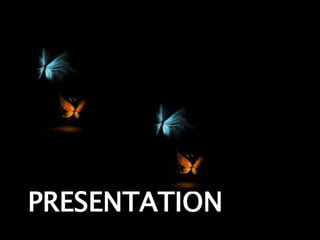
methew arnold
- 1. PRESENTATION
- 2. THE IDEA OF HIGH SERIOUSNESS BY METHEW ARNOLD
- 3. SAIMA KHALID HAFSA ASLAM NAILA GILL SOBIA HABIB FIRDOUS FATIMA SIDRA KANWAL SABEEN SAJID JAVERIA SULEHRI
- 4. CARCASS OF PRENSENTATION PRELIMINARY PHASE CORE PHASE CONCLUSIVE PHASE Wrapping Up
- 6. Its difficult to identify exact time of its origin. “It is usually considered that it were Socrates who introduced Seriousness as a Literary Term in literature”. ANDREAS ISACHSEN claimed in his most famous book “LA ORIGION DE LA TRAGEDIE GRAVE “ THE ORIGION OF THE SERIOUS TRAGEDY
- 7. Philosophers and commentators have different Views about seriousness. Joseph Addison “Seriousness is dullness” Existentialist Philosopher Jean Paul Sartre “Seriousness leads towards high facts of life”.
- 8. In the 19th century Mathew Arnold said that the most important criteria used to judge the value of poem are “high truth” and “high seriousness”
- 9. Berthold Brecht claimed “Mathew Arnold gives very true definition of poetry when he adds high seriousness in it”.
- 11. Matthew Arnold (1822-1888), one of the greatest Victorian poet and critic, was 'the first modern critic', and could be called 'the critic's critic', being a champion not only of great poetry, but of literary criticism itself. He started his career by writing poetry and then turned to be a critic too. Arnold is known to be a classicist among romantics.
- 12. Arnold was a lover of classical values. He believed that a modern writer should be aware that contemporary literature is built on the foundations of the past, and should contribute to the future by continuing a firm tradition.
- 13. Mathew Arnold’s First book as a “ literary critic” “ Preface to the Poems” Before this he was a good writer but not very famous, he earned factual fame because of his renowned work including “The Study of the Poetry”
- 14. THE STUDY OF THE POETRY His most famous piece of literary criticism is his essay “The Study of Poetry.” The essay was originally published as the introduction to T. H. Ward’s anthology. The English Poets (1880). It appeared later in Essays in Criticism, Second Series.
- 15. In this work Arnold is fundamentally concerned with poetry’s high destiny. He believes that “mankind will discover that we have to turn to poetry to interpret life for us, to console us, to sustain us” as science and philosophy will eventually prove flimsy and unstable. At the root of Arnold’s argument is his desire to illuminate and preserve the poets he believes to be the touchstones of literature, and to ask questions about the value of poetry.
- 16. Arnold believes: Poetry can fulfill its high function, only if we keep a high standard for it. For a poem to be of real quality, it must possess both a ”higher truth" and a "higher seriousness."
- 17. What does Arnold mean by Higher seriousness?
- 18. Matthew Arnold does not fully explain the term ‘high seriousness’ but it can be related to “extreme level of seriousness” Arnold considers poetry as an “an application of ideas to life”. If the application of ideas is powerful the poetry will become great, having the quality of “high seriousness.”
- 19. • Aristotle’s observation of superiority of poetry over history having higher truth & higher seriousness. • The substance & matter of the best poetry acquire significance through truth & seriousness.
- 20. C.Day.Lewis wrote in his book “ Gneithe de shaol an duine” “The Elements of human life ” “Seriousness is an attitude of gravity, solemnity, persistence and earnestness towards something considered to be of importance”
- 21. • As a critic Arnold being a moralist has very definite ideas about what poetry should and should not be. • A poetry of revolt against moral ideas, he says, is a poetry of revolt against life, and a poetry of indifference to moral ideas is a poetry of indifference to life. • Aristotle says that poetry is superior to History since it bears the stamp of high seriousness and truth. Arnold took up Aristotle's view, asserting that true greatness in poetry is given by the truth and seriousness of its subject matter, and by the high diction and movement in its style and manner.
- 22. With this Scale of Judgment Chaucer cannot be called a classic since, unlike Homer, Virgil and Shakespeare, his poetry does not have the high poetic seriousness which Aristotle regards as a mark of its superiority over the other arts.
- 23. Although Arnold’s views for Chaucer are: • Chaucer’s power of fascination is enduring. • His poetry is a real source of joy & strength. • He will remain popular in the times to come. • His language is a cause of difficulty for us.
- 24. Arnold’s Classic Poets Arnold’s classic poets include: Milton, Shakespeare, Dante and Homer “The superior character of truth and seriousness, in the matter and substance of the best poetry, is inseparable from the superiority of diction and movement marking its style and manner.” Geoffrey Chaucer falls short of Arnold’s “classic” designation, lacks the “high seriousness” of classic poets.
- 25. • Matthew Arnold talks of deriving pleasure from poetry. • But according to critics he is actually biased towards morality – a fact that is evident from his view that poetry would replace religion. Apart from all the negative criticism directed against Arnold we cannot deny that he has very beautifully related literature to life.